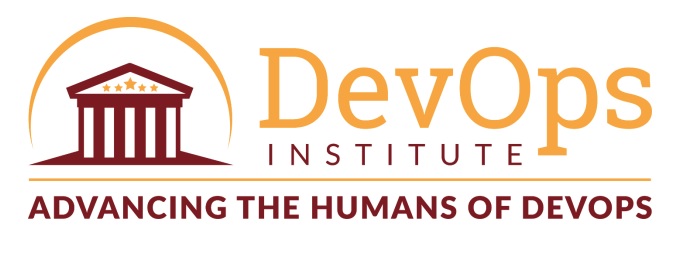Amazon Web Services (AWS) announced the general availability of Amazon Q, a generative artificial intelligence (AI)-powered assistant for accelerating software development and leveraging companies’ internal data.
It is typical for frameworks or practices to create a body of knowledge or "BoK" upon which they and their offerings are based. Traditionally, BoK's are encapsulated in one or more books, written by one or more authors and updated every few years.

In a space that is as global and fast-moving as DevOps, it has been near impossible to point to a single source as the official DevOps BoK. In fact, DevOps Institute has been advocating for a Collaborative Body of Knowledge (cBok) for several years. To my mind, bodies of knowledge should not be fixed.
The model of an inclusive DevOps Collaborative Body of Knowledge (DcBok) has now become a reality. DevOps Institute‘s new SKILup Playbook Library is a series of topics or role-based holistic guidance that marries thought leadership from industry experts with an orchestrated set of dynamic assets and artifacts from a range of vetted sources. Without a fixed form factor, each playbook in the series can be updated and added to in regular increments to keep them fresh.
Every SKILup Playbook is built upon four "start where you are" pillars and includes twelve research chapter reports plus additional content for ongoing discovery and support.

The first SKILup Playbook is aptly named The DevOps Journey with chapter reports by industry experts such as Shaaron Alvares, Matthew Skelton, Andi Mann, Helen Beal, JP Garbani, Karen Skiles and Eveline Oehrlich, DevOps Institute's Research Director who is leading this initiative. The DevOps Journey Playbook includes orchestrated collaborative content from a variety of other public sources in order to present this Collaborative Body of Knowledge (cBok) in a digestible, dynamic and digital way for the DevOps Human, including:
Explore and Discover
■ Key topics around the vision, mission and objectives of the DevOps Journey.
■ What success looks from case studies and vertical markets.
■ The landscape of the "State of DevOps" today and market insight.
Understand and Learn
■ Frameworks for understanding DevOps and other related industry practices.
■ Functional and technical content including glossary and certification information.
Plan, Practice and Do
■ The cultural aspects of the DevOps Journey including skills, role and workplace structures.
■ Content around key functional and process-oriented tasks including automation and industry research.
Optimize and Improve
■ Performance management including measurement and metrics around key performance indicators, objectives and key results.
■ A library of community resources to support discussions and movements associated with improving daily work performance.
Every SKILup Playbook will follow the same model.
Next up in the SKILup Playbook Library – The Site Reliability Engineering (SRE) Playbook (with more to come). Stay tuned!
DevOps Institute will be continuously updating the DevOps Journey playbook and others with regional and global perspectives for actionable strategies and implementations. We invite your feedback at customerservice@devopsinstitute.com and welcome interest in participating in our SKILup Playbook Library.
Industry News
Red Hat announced the general availability of Red Hat Enterprise Linux 9.4, the latest version of the enterprise Linux platform.
ActiveState unveiled Get Current, Stay Current (GCSC) – a continuous code refactoring service that deals with breaking changes so enterprises can stay current with the pace of open source.
Lineaje released Open-Source Manager (OSM), a solution to bring transparency to open-source software components in applications and proactively manage and mitigate associated risks.
Synopsys announced the availability of Polaris Assist, an AI-powered application security assistant on the Synopsys Polaris Software Integrity Platform®.
Backslash Security announced the findings of its GPT-4 developer simulation exercise, designed and conducted by the Backslash Research Team, to identify security issues associated with LLM-generated code. The Backslash platform offers several core capabilities that address growing security concerns around AI-generated code, including open source code reachability analysis and phantom package visibility capabilities.
Azul announced that Azul Intelligence Cloud, Azul’s cloud analytics solution -- which provides actionable intelligence from production Java runtime data to dramatically boost developer productivity -- now supports Oracle JDK and any OpenJDK-based JVM (Java Virtual Machine) from any vendor or distribution.
F5 announced new security offerings: F5 Distributed Cloud Services Web Application Scanning, BIG-IP Next Web Application Firewall (WAF), and NGINX App Protect for open source deployments.
Code Intelligence announced a new feature to CI Sense, a scalable fuzzing platform for continuous testing.
WSO2 is adding new capabilities for WSO2 API Manager, WSO2 API Platform for Kubernetes (WSO2 APK), and WSO2 Micro Integrator.
OpenText™ announced a solution to long-standing open source intake challenges, OpenText Debricked Open Source Select.
ThreatX has extended its Runtime API and Application Protection (RAAP) offering to provide always-active API security from development to runtime, spanning vulnerability detection at Dev phase to protection at SecOps phase of the software lifecycle.
Canonical announced the release of Ubuntu 24.04 LTS, codenamed “Noble Numbat.”
JFrog announced a new machine learning (ML) lifecycle integration between JFrog Artifactory and MLflow, an open source software platform originally developed by Databricks.
Copado announced the general availability of Test Copilot, the AI-powered test creation assistant.




